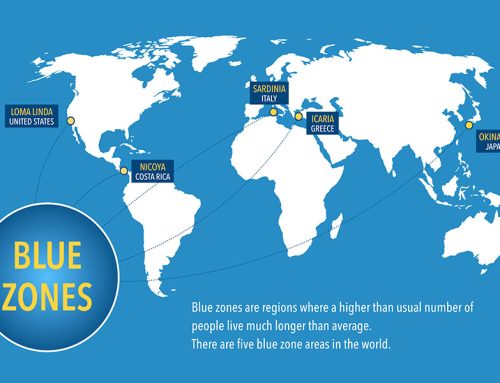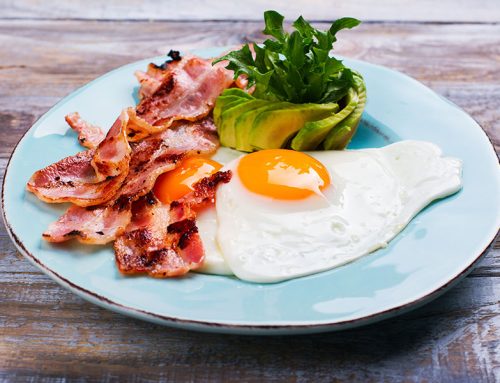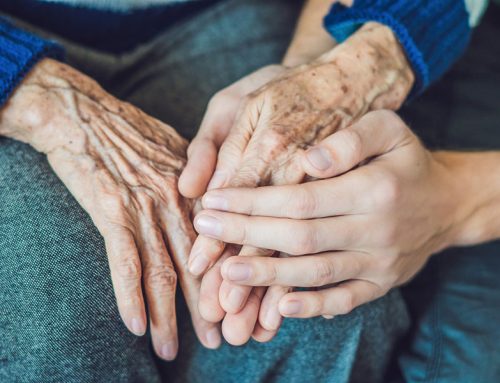Have you ever been on a fat loss diet? Are you into fitness or bodybuilding? If so, then I have little doubt that the question of egg whites vs whole eggs has been on your radar at one time or another. My psychic abilities tell me that you probably fall in one of these groups:
1. You believe that eating egg whites is the superior way to get more protein, keep calories low and burn more fat (and you might also believe all that yellowy, cholesteroly stuff is bad).
2. You are convinced that whole eggs (including that yolky goodness) are a superfood loaded with nutrients, and people who eat egg whites and throw away the yolks must be dumb bodybuilders, and don’t do science.
3. You’re totally confused by all the conflicting advice about egg whites vs whole eggs because diet “experts” are always at war and no one can agree on anything, not even in the studies.
Well, there’s actually another group. It’s more like the sensible middle. It’s the scientific group too, so don’t diss “the studies” if you haven’t read them and don’t know the difference between correlation and causation. There’s actually more science on this topic of egg whites vs whole eggs available for inquiring minds than ever before.
But if you’re not going to read every one of the scientific studies (they’re pretty dry), at least read this post. I guarantee it will answer all your questions, and entertain at the same time… It’s kind of a long one, so grab a coffee, get comfortable and read on!

Some proof that folks are mightily confused about egg whites vs whole eggs even to this day comes in the form of the dozens of emails I get every week like this one, from Michael:
Q: Tom I’m really confused about eggs. I’m not even sure if you can answer this or not, but to me and I’m sure many more of your readers, it’s a very confusing and important topic. I only use egg whites because I did always believe that the yolks are bad because of cholesterol and saturated fat. But with so many people coming out saying we are missing all the best nutrients by throwing out the yolks, it’s very confusing and I don’t know what to believe anymore. Could you please help clarify this issue? -Michael
A: Let’s start answering this question with the health side of things. Then we’ll get into the more fun bodybuilding and fat loss side of the issue, shall we?
The evidence about eggs and health has reached a tipping point where experts are finally changing their tune. Scientists have been saying for at least a decade that one or two whole eggs a day is not unhealthy for most people. One of the newest studies found that a dozen eggs a week had no negative health effects.
Why Eggs Were Demonized In The Past, And What Science Says About Whole Eggs And Health Today
For years, consumers were bombarded with messages about how high cholesterol foods would increase risk of high blood cholesterol and heart disease. Even today, a lot of people still feel certain that dietary cholesterol is dangerous. At the very least, they are confused by conflicting advice.
This story goes all the way back to the 1940s. That’s when scientists found a correlation between saturated fat and cholesterol in the diet and high blood cholesterol and cardiovascular disease. But correlation does not equal causation.
If you do some Googling, you can come up with some hilarious examples of correlation not equaling causation. Like how eerily the sales of organic food correlate with autism. (Does eating organic food cause autism?). Or, the number of people who drowned falling into a pool uncannily correlates to the number of films that Nicholas Cage appeared in. (Therefore, Nicholas Cage movies cause drowning in pools, right?)
I’d go on and on but just search for “spurious correlations” if you want to learn more. Here’s what I’m trying to say..
Based on a correlation between cholesterol and heart disease alone, this lead mid to late-20th century public policy makers to set guidelines to reduce cholesterol in the diet. The American Heart Association said to limit cholesterol to 300 milligrams a day. A large egg has 186 milligrams, so it would take less than two eggs to put you over – and that is why so many people started avoiding whole eggs.
Once the idea was out there, it was hard to break free from it. But over the years, new research kept coming out and it finally started getting more clear that cholesterol in food wasn’t necessarily the problem. Your body needs cholesterol, and you actually make about 1000 to 2000 mg per day in your liver. It’s an important substance used to make hormones, produce vitamin D, build cell membranes and help with digesting fat.
The whole misunderstanding happened because people were confusing cholesterol in food with cholesterol in the bloodstream – high-density lipoproteins or HDL, aka the “good” cholesterol and low-density lipoproteins or LDL aka the “bad” cholesterol. The LDL is considered bad because it’s the kind that can cause a buildup of plaque in the arteries, which can lead to heart attacks and strokes.
As it turns out, eating multiple whole eggs daily can in fact raise total blood cholesterol, but it doesn’t always have a negative effect. Here’s an example of why: In one study, the test subjects eating three eggs a day did see an increase in cholesterol, but it was HDL not LDL. In another study, two eggs per day increased LDL, but the HDL also increased. The end result was a wash – no negative effects.
Also, the human body has a feedback loop that regulates cholesterol. When most people take in more cholesterol from the food they eat, their body makes less cholesterol of its own.
And, the rest of your diet matters too. If someone eats more eggs, but they’re also eating more processed foods and refined fats or oils, especially if they’re low on healthy omega-3 fats, that can also have a negative impact on blood cholesterol. This is another reason why it’s so hard to disentangle cause from effect.
The newest research has shown that in most people’s bodies, if you eat more eggs and nothing else changes in an otherwise healthy diet, the cholesterol in the eggs usually doesn’t translate into increased cholesterol in the blood, into a bad ratio of HDL to LDL cholesterol, or heart disease. (Phew!)
As far back as 2006, evidence was already adding up that made scientists doubt whether eggs were a bad guy after all. For example, a study from the University of Massachusetts published in the Journal of Nutrition concluded, “Our data shows that eating an egg a day isn’t a factor for raising cholesterol.”
Research Like This Has Kept Confirming The Same Thing, Right Up To To This Day
In a study published in the American Journal of Clinical Nutrition in 2018, people with diabetes or pre-diabetes who followed a 3 month “high egg diet” (12 whole eggs per week) showed no adverse changes in cardio-metabolic markers compared with people who followed a low egg weight loss diet (that had a limit of 2 eggs a week). The researchers said it looked like it was safe to eat more whole eggs than some national guidelines were still suggesting.
In a 2019 umbrella review of research literature published in the journal Public Health And Nutrition, the scientists said, “Overall, the evidence suggests that egg consumption is not associated with increased risk of heart disease.”
So it seems eggs have been exonerated for the most part.
But…
It may be premature to tell the entire population that eating yolks in “unlimited quantities” is a good idea. And yet there are plenty of self-proclaimed nutrition experts (any keyboard warrior with instagram followers) saying exactly that.
“Eat all the whole eggs you want” may not be good advice for health reasons as well as calorie (fat loss) reasons.
First, genetics play a role in how individuals respond. At the University of Connecticut, researchers found that most people – about 70% of the population – have only a mild increase or no change in plasma cholesterol even when they’re fed large amounts of dietary cholesterol. They’re called “hypo-responders.”
But about 30% of people do experience a rise in blood cholesterol after eating eggs. They’re known as “hyper-responders.”
Fortunately, even in hyper-responders, some scientists say that an increase in total cholesterol is not necessarily a cause for concern. For example, if LDL increases, but HDL also increases the same amount, the risk for cardiovascular disease may not increase because the ratio of HDL to LDL was maintained.
But there are also outliers where real caution is in order.
For example, hypercholesterolemia is a genetic disorder where the body can’t remove LDL from the blood, and that causes elevated levels. This is why some scientists are still wary about making a single recommendation for eggs and assuming it applies to everyone.
Nutritional Value And Health Benefits Of Whole Eggs vs Egg Whites
Okay, enough about the cholesterol and heart disease stuff. What about all the people you hear online saying, “The best nutrients are in the yolk!” Is there any truth to this?
In the book, the Omega-3 Connection, Dr. Andrew Stoll said, “Egg yolks, long banished from the breakfast table, are extremely good for you. The yolk contains lutein and zeaxanthin, which are the light-absorbing biochemical pigments that are powerful antioxidants. Lecithin, another component of egg yolk, is an important constituent of all cell membranes.”
Eggs are a great source of high-quality protein, and the protein is split almost evenly between the yolk and the white. One large egg has 6.3 grams of protein with 3.5 grams of protein in the white and 2.8 grams in the yolk.
Some people say that whole eggs are more “complete foods” than egg whites, which might be accurate from an overall nutrient perspective, but the egg white is absolutely a “complete protein” if you’re talking about having all the essential amino acids.
Some critics of this trend to eat more eggs point out that the yolk also contains arachadonic acid, which may be inflammatory. But other experts say that even if you ate a dozen whole eggs a day, it’s not likely to be arachadonic acid causing problems, but an imbalance between the arachadonic acid and the omega 3 fatty acids because so many people are deficient in omega 3’s today.
A solution some experts propose is using omega-3 eggs. Omega eggs have more omega-3 fatty acids because the hens are fed foods like flax seed, fish oil or a special type of algae. Artemis Simopolous, is an author and medical doctor who has recommended eggs from free-ranging hens. In her book the Omega Diet, here’s what she said:
“The eggs from our free-ranging hens contained 20 times more omega 3 fatty acids than the standard supermarket eggs. They had a ratio of omega 6 to omega 3 fatty acids of 1 to 1 while the supermarket eggs had a lopsided ratio of 20 to 1.”
Sounds good. But… The downside of omega-3 eggs is that they don’t give you nearly as much omega-3 as eating fatty fish itself. You might as well eat some salmon every week and then you meet your needs more efficiently.
So How Many Whole Eggs Can Or Should You Eat?
There are numerous studies now showing no negative effects of eating one or two whole eggs every day. There is just about ZERO evidence for a healthy person not to eat a one or two whole eggs a day – even every day of the week.
On the other hand, even to this day, not many researchers or doctors seem willing to stick their necks out and say, “Eat all the whole eggs you want.”
I’ve wondered about this myself for a long time: Is there a limit to the number of eggs you could eat per day – as long as you stay inside your calorie budget and don’t push out other important nutrients?
I reached out to Dr. Spencer Nadolsky, a medical doctor who is also a bodybuilder and fitness expert, to see if I could get an answer. Here’s what he told me:
“My general rule of thumb is to keep your diet consistent and then just test yourself. So if the only thing in your diet you change is the amount of whole eggs and your cholesterol doesn’t change, then the number of eggs you’re eating is likely fine.”
Egg Whites And Fat Loss
When comparing egg whites vs whole eggs, the tide has now turned so much in favor of whole eggs that when bodybuilders and fitness enthusiasts keep recommending egg whites, they often get blow-back, like:
“You meathead! All the good stuff is in the yolk! Why are you throwing away the best part of the egg?”
Happens to me all the time…
I post a meal plan or a recipe and there are egg whites, but no egg yolks, and sure enough, people come out of the woodwork leaving snarky comments about how uneducated I must be about nutrition. Meanwhile, I’m the one who read every research paper listed at the bottom of this page. They’re the ones doing intermittent-bulletproof-coconut-keto-paleo because they read about it while they were in line at the grocery store.
But seriously, when you consider how many whole eggs to eat, there’s more to it than nutritional value and health impact. You also need to consider how those eggs fit into your calorie and macro goals. Whole eggs are not low-calorie foods, whereas egg whites are extremely low in calories.
Remember that anything you add or increase in your diet has to push out something else if it’s still going to fit into your calorie and macro targets for the day. Even if eggs are 100% healthy beyond a couple a day (which scientific research has not universally confirmed), we still have to remember that too many calories of anything, even healthy foods, will get stored as fat.
One reason bodybuilding and fitness-minded people still use egg whites a lot is not because they think egg yolks are unhealthy to every person in any amount, but simply due to how the calories can add up if you use a lot of whole eggs. Whole eggs are fairly calorie dense, while egg whites are extremely low in calories, which explains why egg whites are one of the top choices for lean protein on calorie-restricted fat loss and bodybuilding diets.
Even though I do use egg whites often, in all my years of bodybuilding, even back in the late 1980s, and 1990s, I never threw away all my yolks. My daily meal plans typically contain one or two whole eggs, sometimes with as many as 6-12 egg whites.
Why not ALL whole eggs? Well you could do that, but using more whites than yolks provides the high protein without so many calories. Using all whole eggs would be more appropriate in a low carb diet (especially keto), and I usually use more balanced diets with moderate amounts of natural carbs to fuel my training.
Take a look at this egg whites vs whole eggs comparison:
3 whole large eggs: 225 calories, 18.9 g protein, 15 g fat
8 egg whites & 1 whole egg: 211 calories, 34.3 g protein, 5 g fat
Do you see what was accomplished here? I didn’t remove egg yolks because I’m afraid of cholesterol. I removed most of the egg yolks because I was on a calorie budget and I was on a higher protein diet and I wanted more protein with fewer calories. Make sense?
Also, if you follow my blog, then you know about the latest research on protein metabolism, which says that 18 grams of protein is not even enough in one sitting to optimize muscle protein synthesis. But if I eat 8 egg whites and 1 whole egg, then I’m well into optimal per meal protein territory.
Another reason that bodybuilders use liquid eqq whites so often is for convenience. They can pour them from the carton right into the skillet and they don’t have to do all that shell cracking and egg white separating. Also, this way, they avoid “egg yolk guilt” (feeling like they wasted food by throwing out the yolk).
Stop laughing, egg yolk guilt is a real thing.
Whole Eggs And Bodybuilding – “Better Than Steroids?
Let me leave you with a funny story.
When I started bodybuilding as a teenager, I latched onto the teachings of a bodybuilding guru trainer from North Hollywood name Vince Gironda.
Gironda trained all the top movie stars back in his day including Erik Estrada, Clint Eastwood, Tommy Chong, Carl “Apollo Creed”Weathers and too many others to mention.
He was also the Trainer of bodybuilding champions such as Larry Scott, the First Mr. Olympia, and believe it or not, he was Arnold’s first trainer when Joe Weider sent the budding young star to America from Austria.
Gironda had been saying from day one (back in the 1950’s and 1960’s) that the whole egg was”nature’s perfect food” and he compared them to “natural steroids.” (That was a great line… the guy was good at marketing).
On some of his low carb “muscle definition” diets, he said you could eat as many whole eggs as you wanted and even scramble them in butter. He said that he had some of his champion bodybuilders on two dozen or even up to three dozen eggs a day!
I didn’t really understand what a ketogenic diet was at the time, but being an obedient, guru-following teenage bodybuilder, desperate for muscle, I did what he said. I ate up to 3 dozen whole eggs a day for months on end (usually only 2 dozen, but I swear it’s true, I really did eat 36 eggs a day on many occasions).
Well, there was no miraculous steroid-like effect, and I didn’t drop dead of a heart attack either.
But one thing I did notice is that I did not lose fat like Gironda said I would.
The reason should be obvious: three dozen whole eggs is 2700 calories (more if you use extra large or jumbo eggs). I was at nearly maintenance calories from the eggs alone, and eggs weren’t the only thing I was eating. (There was lots of steak too).
Gironda, like many other low carb gurus, did not place any restrictions on calories, only on foods (carb restriction). Some people called Gironda a genius, years ahead of his time, but this was one flaw in his program. Even on low carb diets, you STILL need a caloric deficit to lose body fat.
After this daring eggsperiment, my approach changed and I went back to more “normal” quantities of eggs and I started removing some of the yolks to keep me more easily within my caloric deficit without losing the high quality protein. But I never cut all the yolks because of their nutritional value, and yes it is true, you do need to keep some fat in your diet.
To this day, I still keep one or two yolks in my omelets and scrambles. Sometimes more, as long as it fits in my calorie budget and I hit my macro targets, but I also use egg whites when I want to boost protein while keeping the calories down.
Here Are Some Key Take-Home Points To Remember
The weight of all the current science says that for most people, eating one or two whole eggs per day does not have negative effects on blood cholesterol that increase cardiovascular disease risk. Nutrition research also confirms that including some whole eggs can add valuable nutrients to your diet.
But before you increase your intake of whole eggs arbitrarily, (or troll egg white eaters on the Internet), keep in mind that controlling blood cholesterol with nutrition can be a complicated science in some cases, based on health status, genetics and the rest of a person’s diet and lifestyle.
If you’re looking for advice on what to eat for cardiovascular health, the best answer you can get won’t be from a trainer, including me. The best thing you can do is go get a blood lipid panel done and talk to a doctor you trust about the results of that test. Don’t trust your health to what diets are trending on google or featured on the covers of supermarket tabloids.
And please consider what I’ve shared as general information only, not medical advice. This has simply been an update of the latest scientific research – and a personal anecdote or two – and I hope you found it helpful.
Train hard and expect success,
Tom Venuto
Founder, Burn the Fat Inner Circle
Author, Burn the Fat, Feed the Muscle
For Tom Venuto’s Classic-Selling Bible Of Fat Loss, Burn the Fat, Feed the Muscle (BFFM), CLICK HERE
To download Tom’s newest book, The BFFM Guide to Flexible Meal Planning For Fat Loss CLICK HERE

Tom Venuto is a lifetime natural (steroid-free) bodybuilder, fitness writer, and author of Burn The Fat, Feed The Muscle: Fat Burning Secrets of Bodybuilders and Fitness Models and the national bestseller, The Body Fat Solution, which was an Oprah Magazine and Men’s Fitness Magazine pick. Tom has appeared in The New York Times, Wall Street Journal, Huffington Post, Oprah Magazine, Muscle and Fitness Magazine, Ironman Magazine and Men’s Fitness Magazine, as well as on dozens of radio shows including Sirius Satellite Radio, ESPN-1250 and WCBS. Tom is also the founder and CEO of Burn The Fat Inner Circle – a fitness support community for inspiration and transformation
Scientific References
Applegate, E, Nutritional and functional roles of eggs in the diet. Journal of the American College of Nutrition, 19:90005, 495S – 498S, 2000, University of California at Davis.
Fernandez ML., Dietary cholesterol provided by eggs and plasma lipoproteins in healthy populations. Curr Opin Clin Nutr Metab Care. 2006 Jan;9(1):8-12. Department of Nutritional Sciences, University of Connecticut
Fuller NR et al. Effect of a high-egg diet on cardiometabolic risk factors in people with type 2 diabetes: the Diabetes and Egg (DIABEGG) Study-randomized weight-loss and follow-up phase. Am J Clin Nutr. 107(6):921-931. 2018
Herron KL, Lofgren IE, Sharman M, Volek JS, Fernandez ML, High intake of cholesterol results in less atherogenic low-density lipoprotein particles in men and women independent of response classification. Metabolism. 2004 Jun;53(6):823-30. Department of Nutritional Sciences, University of Connecticut, Storrs, CT, USA.
Herron and Fernandez, Are the current dietary guidelines regarding egg consumption appropriate? J. Nutr, 134: 187-190, Jan 2004. Dept of Nutritional sciences, University of Connecticut
Kritchevsky SB.J Am Coll Nutr. 2004 Dec;23(6 Suppl):596S-600S. A review of scientific research and recommendations regarding eggs. Wake Forest University School of Medicine,Winston-Salem, NC, USA.
Mah E, The effect of egg consumption on cardiometabolic health outcomes: an umbrella review.Public Health Nutr. 10:1-21. 2019.
Nicolosi, R, et al, Consumption of One Egg Per Day Increases Serum Lutein and Zeaxanthin Concentrations in Older Adults without Altering Serum Lipid and Lipoprotein Cholesterol Concentrations, J. Nutr. 136:2519-2524, October 2006, Center for Health and Disease Research, University of Massachusetts Lowell, MA
Ohman M, et al, Biochemical effects of consumption of eggs containing omega-3 polyunsaturated fatty acids, Ups J Med Sci, 113(3): 315-323, 2008, Uppsala University Hospital, Sweden
Vander Wal JS, et al,Short term effect of eggs on satiety in overweight and obese subjects, Journal of the American College of Nutrition, 24 (6), 510-515, Department of Psychology, Saint Louis University, Saint Louis, MO, USA2005.
Vander Wal JS, et al, Egg breakfast enhances weight loss, Int J Obes, 32(10):1545-51. Department of Psychology, Saint Louis University, Saint Louis, MO, USA, 2008.
Won O. Song, PhD, MPH, RD and Jean M. Kerver, MS, RD, Nutritional Contribution of Eggs to American Diets, Journal of the American College of Nutrition, Vol. 19, No. 90005, 556S-562S (2000).






I eat the whole egg 3 or 4 at a time. I would think you would have to eat dozens at a time to get fat. The research lately has been the exact opposite of the past. The cholesterol is in mg’s not grams.
RE: Egg consumption.First the Framingham study some years back showed conclusively that the consumption of two (2) eggs daily have no unfavourable impact on cardiovascular health.About 2002 a professor at University of Sydney (Aust) showed that eggs may lower cholesterol and do lower blood pressure.Now importantly we need to consume only free range eggs! Grain fed may be hazardous.Eggs contain Lecithin, a proven FAT emulsifier. Lecithin contains choline the precursor to acetylcholine our number 1 neurotransmitter and more, especially little known phosphatydilserine, another very essential neurotransmitter and just about the best treatment for Stroke!At 78 years of age, with a biological (true) age of 62, in spite of “Hashimoto’s disease” (thyroid) which keeps cholesterol elevated, one consumes with great gusto at least 8 eggs a week.In case you youngin’s don’t get the drift here, most of you are not going to make it to 78, because of the amount of cereal, grains and bread you consume and the lack of saturated fat.Free range beef, dairy, lamb and turkey all contain (in their fat) conjugated linoleic acid proven to prevent and treat obesity, cardiovascular disease, metastasis in breast cancer, and enhance immune function. Best known source Aberdeen Angus beef tallow.
Can’t agree more with the above comment from Geofrey Leigh! On the calorific value of whole eggs – and for us folk not body building but just losing weight! – one whole egg is 75 calories and is extremely sustaining.So, 1 egg plus 1 a peice of wholemeal toast with butter for breakfast will see anyone through to lunchtime and is lower in calories than a bowl of porridge (oatmeal to our American cousins).QED methinks…Clarinda – who has lost 42 lbs in the last 9 months! And I’d settle for 120!!
Hey Tom,I’m glad that this questions was proposed to you and even happier that you took the time to provide a detailed response.The fear around whole eggs seems to be greater than ever and at the same time the doctors eagerness to prescribe you cholesterol medication is skyrocketing… This drives me nuts.Whole eggs are a staple in my diet. I have 3 for breakfast every day along with mixed veggies or spinach mixed in. I do take into consideration the caloric content and the amount of fat and it actually works out to a perfect meal for me.Often times I will have 2 more whole eggs later in the day. I get my cholesterol checked yearly and it has not gone up since adopting this eating style.When I was trying to put on muscle mass I was consuming 6 to 9 whole eggs per day on many days and still no rise in cholesterol.Here’s the thing that gets me Tom…Many people are quick to point out reasons to avoid a healthy natural food such as cholesterol in eggs or sugar in fruit. Because of a published study or magazine article they will completely eliminate that healthy food from their diet and they have no problem doing it.Yet, these many of these same people are still diving into their fast food greasy meals, tubs of ice cream, and fist fulls of candy.The reasons for avoiding these unhealthy foods are obvious, but if you ask them to give that up it’s like asking for their 1st born.When the majority of your diet is natural foods as you teach us in Burn The Fat, Feed The Muscle, it’s a lot easier to include 3 whole eggs into your meal plan and not exceed your calories. But add just one fast food meal or a grande frappaccino and forget about it.My advice… spend less time fussing over the reasons to avoid a healthy natural food and more time focusing on how you can add more of it to your meal plan which will leave you much more satisfied and full of energy throughout your day.Love the Q and A’s on your blog Tom. Keep it up!Scott Tousignant
Thanks for the info!!! Love the Girobnda story at the end…..JoshNew Orleans, Louisiana
Tom I enjoyed your Vince Gironda story.Kenneth
Tom,The egg is one of the most nutrient dense foods on the planet. I did a study of thirty-plus vitamins/minerals/etc., placing that list down the side of a spreadsheet, and then listing all the best food sources for each along the top of the spreadsheet. Eggs were among the ‘best’ foodsources for half of those thirty-plus nutrients.From another angle (a more important angle), God settled the ‘egg issue’ thousands of years ago in the Bible…”If a son asks for bread (a good thing) from any father among you, will he give him a stone (a bad thing)?Or if he asks for a fish (a good thing), will he give him a snake (a bad thing)?Or if he asks for an egg (a good thing), will he give him a scorpion (a bad thing)?If you then, being sinful, know how to give good gifts to your children, how much more will your heavenly Father give the Holy Spirit to those who ask Him!”- Luke 11:11-13In another passage, the Bible mentions eating the yoke with the egg because that is where the flavor is, as opposed to the whites only.So there you have it. The Creator of our bodies and what should be food for us has said that eggs (including the yoke) are a ‘good thing’.It’s interesting to note that the man-author for this passage was Luke, a physician at that time, before physician became a bad word (Dr. Luke).You would be amazed with the ‘health’ wisdom found in the Bible. I refer to it as The Biblical Doctrine of Physical Health, which includes the topics of diet, rest, exercise, cleanliness, medical care, fasting, etc., as well as indirect issues that effect our health; bitterness, unforgiveness, etc.Check out Ecclesiastes 10:17 for the best summary of ‘diet’ ever put together. In about 25 words, God has better communicated a healthy diet plan than every diet book put together.Best wishes for your continuing book project.Scott
What is the differance in calories and nutrition on free range eggs vs. store bought. You can see and taste the differance with the free range having a much darker and richer yoke.
I recently entered a bodybuilding competition in the masters division. It has been over 20 yrs since I’ve competed but I was amazed at the misinformation backstage re fat. Americans are eating less fat than ever yet a trip to any mall will reveal that the low fat mania has been a miserable failure. For the skinny on fats /cholesterol, see Dr. Mary Enig, one of the world’s top lipid biochemist. This fat /cholesterol axiom is 20 yr old archaic thinking based on food politics and not fact. Cut the junk food/drink carbs and watch the fat go at the rate of @ 2- 2 1/2 lbs per week.
You should remind folks (or I will here) that you can buy just the whites along with your whole eggs in order not to waste all those yolks! You can also freeze the yolks for use in cooking and baking later.Thanks for that perspective.
I agree with the whole egg perspective, being especially careful to note that free range eggs, even locally grown are best if possible. Protein content varies from approx. 6-7grams for a free range egg to 3 for a typical store bought egg. Thank you for all the detailed information in this article.I also appreciate the feedback from Scott regarding the Biblical perspective. Awesome. I am a Certified Natural Health Professional and deal with people concerning dietary habits everyday.
Scott: Enjoyed your Biblical input on this thread and I thought “Dr. Luke” was very funny :)
Excellent stuff and a timely read as a few of my personal training clients have been asking me some of the questions recently.Even though I know the reason for the practice, some times you just need a little refresher and that example of the calories in the 3 vs 8 eggs is brilliant.Kind regards, Clayton.Personal Trainer | Adelaide Australia
Vince Gironda also the guy that popularized PHA (Peripheral Heart Training) . & other protocols back in the 1960s, which many trainers have adopted with a new name and pretended like they “invented” it..like those blabbing about HIIT as if they have perfected cold nuclear fusion, HIIT was known about 130 years ago (there were 1890s scientific papers on its benefits, Finnish runners used the training protocol in the 1920s and won many Olympic gold medals in running events
Kevin, very true – there is little new under the sun and as Jim Rohn said, there’s no such thing as a new fundamental. That said, hypertrophy training science has advanced by leaps and bounds in the last 10 years alone – the data has simply been pouring out labs and universities at an unprecedented rate and while some ideas are as old as Gironda (or older), whether a training concept really works (or works efficiently) has often been left unsettled for decades, and then just in recent years we’ve gotten scientific confirmation about efficacy.
I sometimes winder if the stress induced from agonizing over conflicting studies offsets any potential gain from knowledge & recommendations that go back & forth
good/bad/good/bad, as with eggs, coffee & many things
Karl, this is why its important to study critical thinking and understand evidence-based practice. once you do, the agonizing ends. Until you reach that point where you are no longer stressed over what’s good for you and what’s bad for you it helps to follow ONLY coaches and writers who are evidence based critical thinkers themselves, because then you don’t have to read all those studies, you can trust someone else to review and curate all the information for you. Trouble is, you have to choose wisely, or else you end up drinking butter in your coffee, expecting greater fat loss, and other such shenanigans LOL. PS. who would ever say coffee is bad. :-)
Like the evidence-based arguments based on careful research!.; To my mind there are two other points that would be relevant here and I would like to see analysed;
1) the idea that the key benefit of high protein / carb restriction eating can be simply reduced and manage appetite.
2) it’s always misleading to generalize, but there is good sense and evidence around limiting processing or concentrating food components, which is what happens with say 10 egg whites and 1 whole. Not much different in my view to eating chicken breast vs the whole chicken – but that’s a view what is the evidence?
* manageable appetite